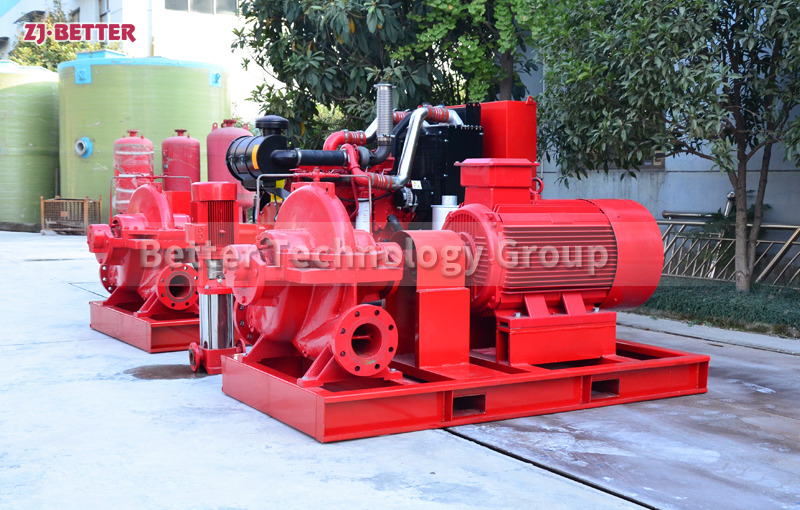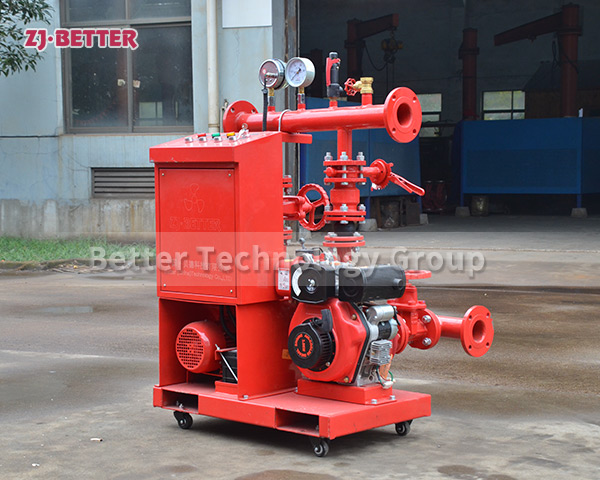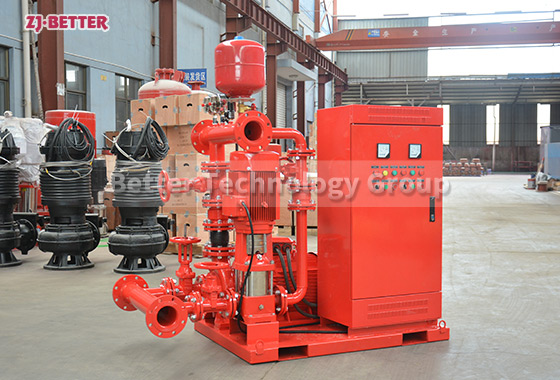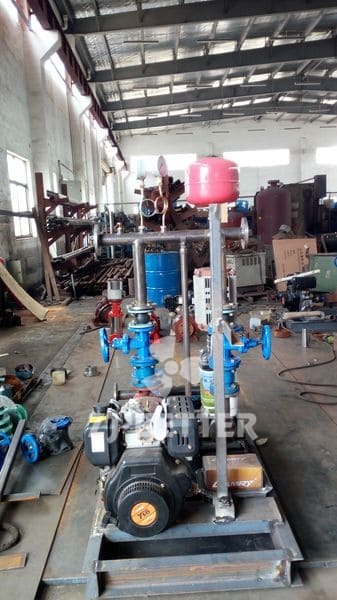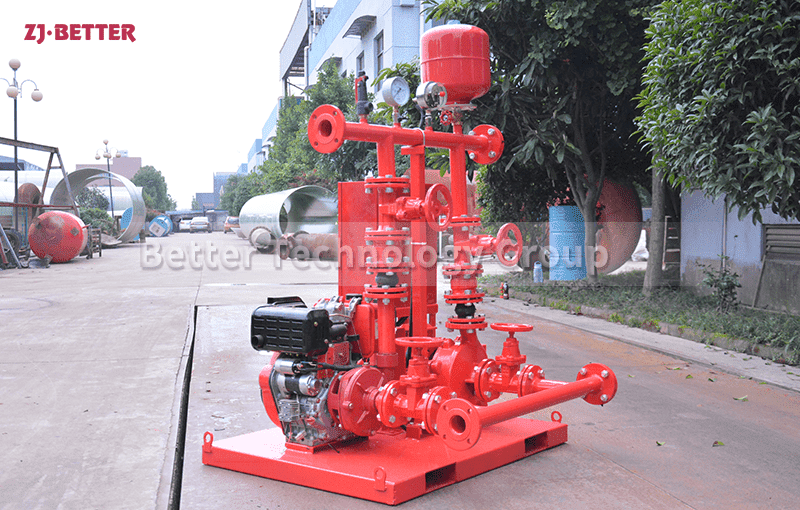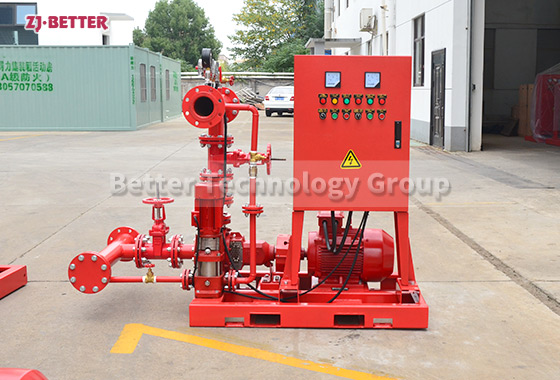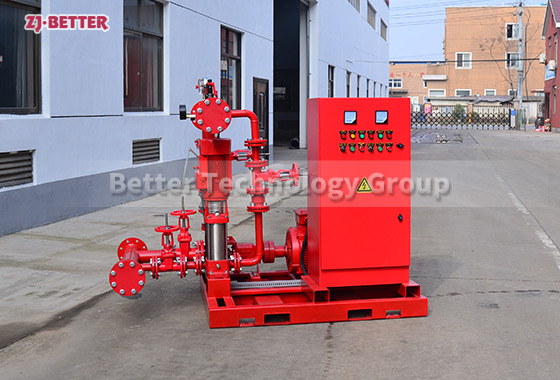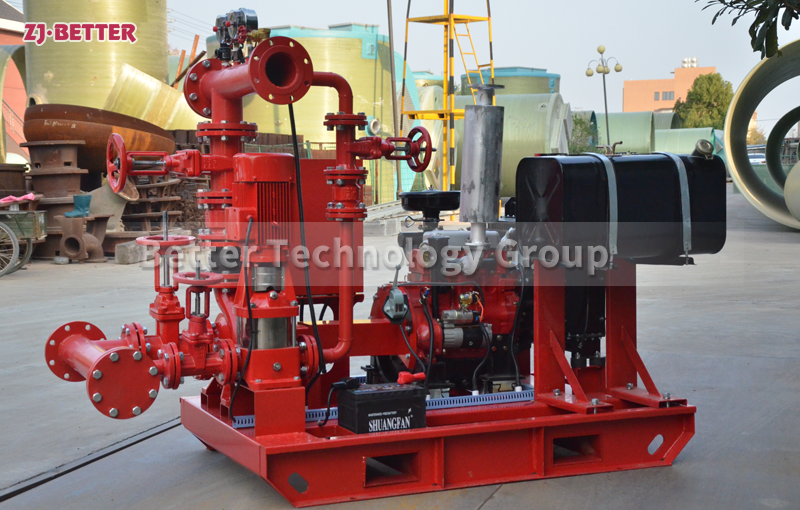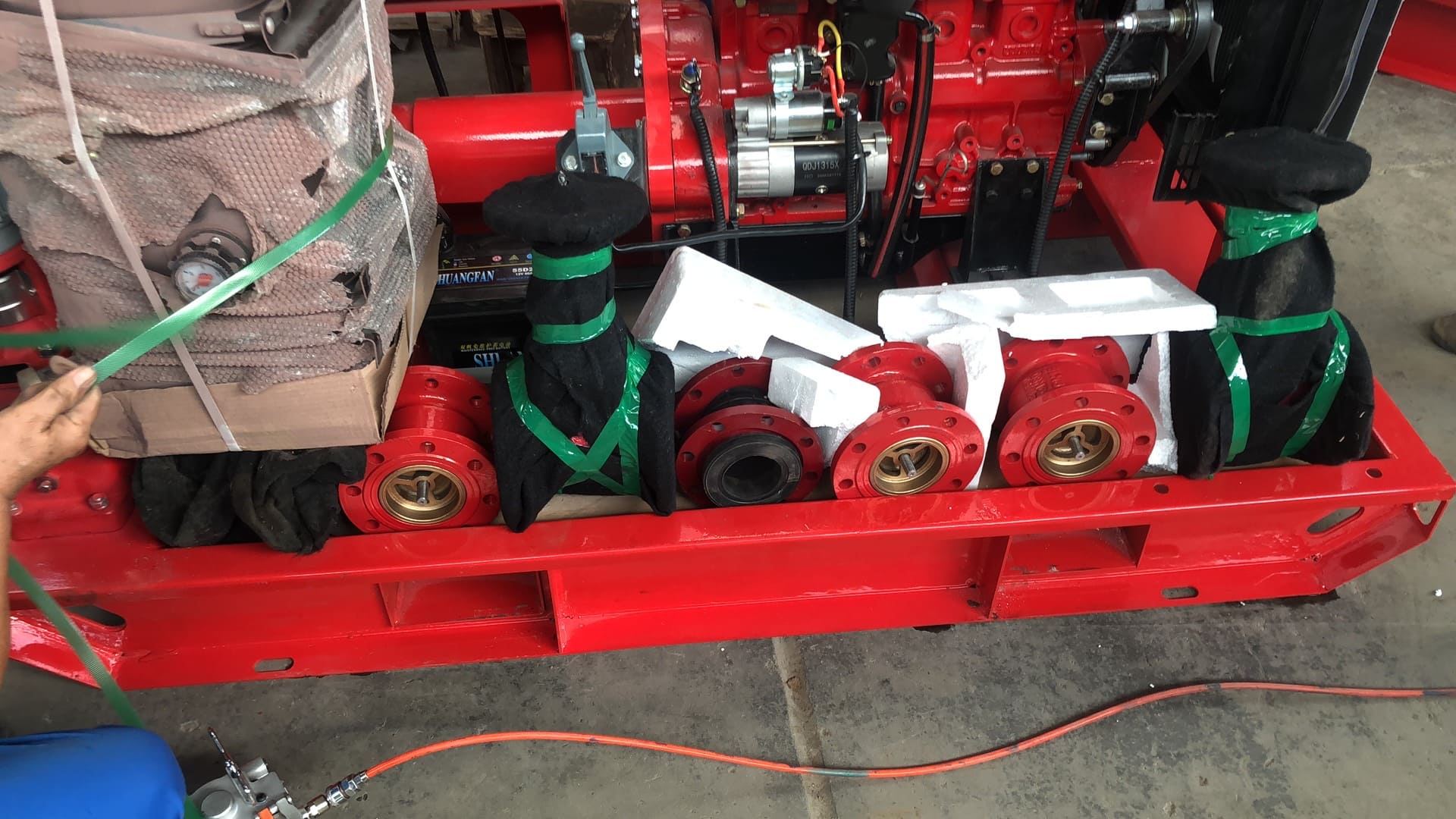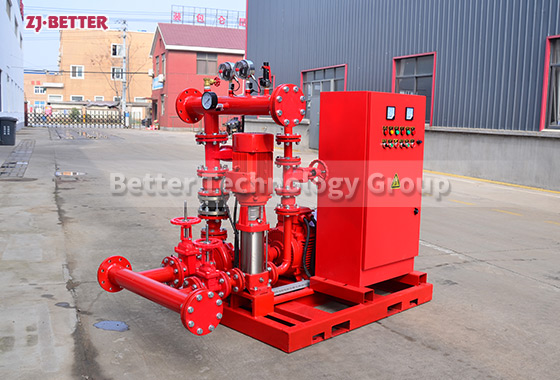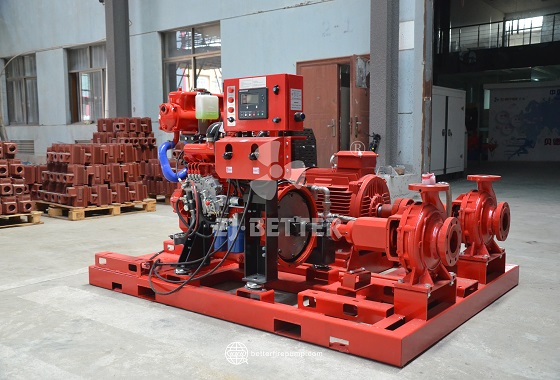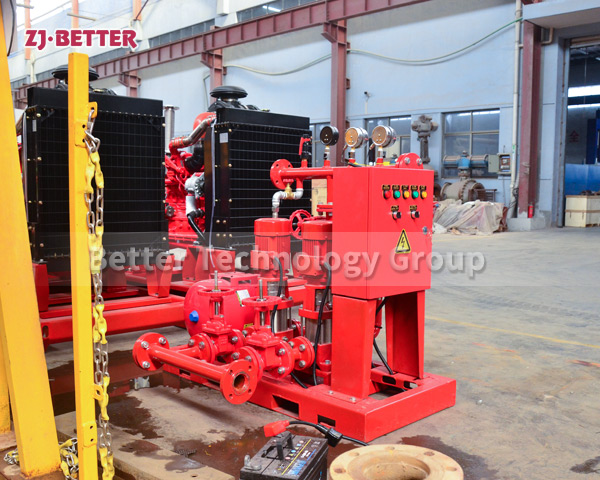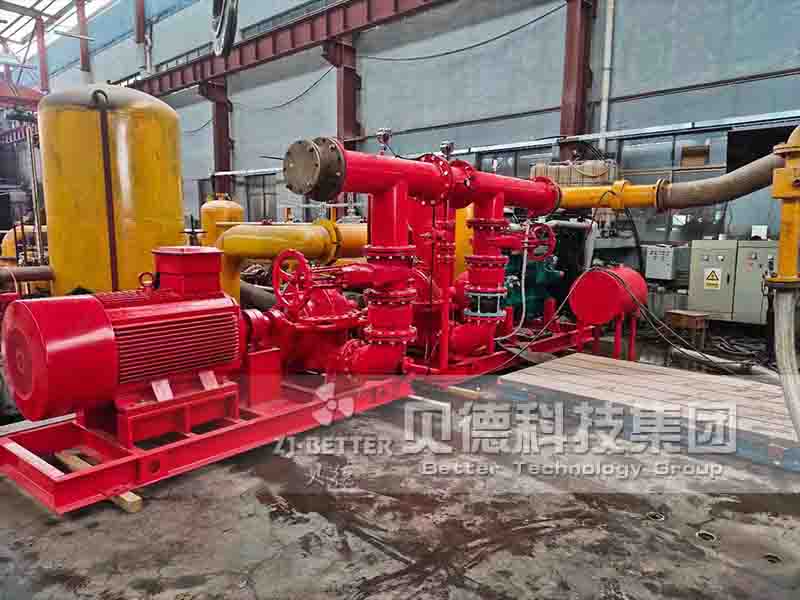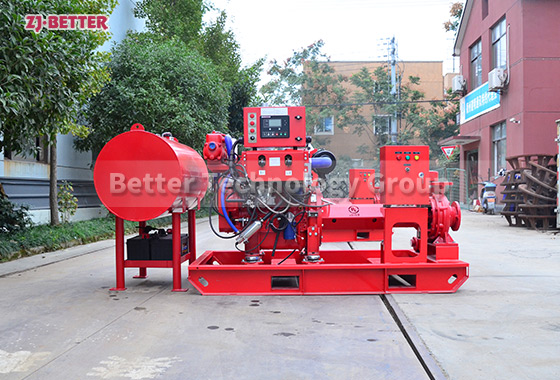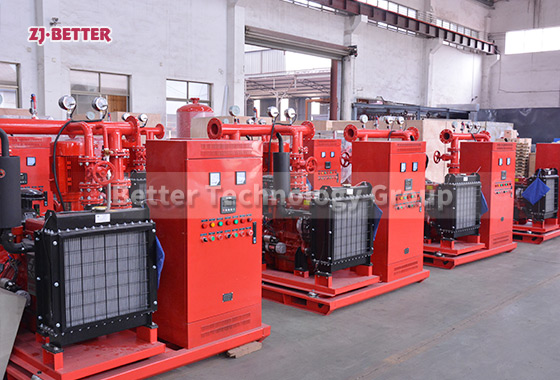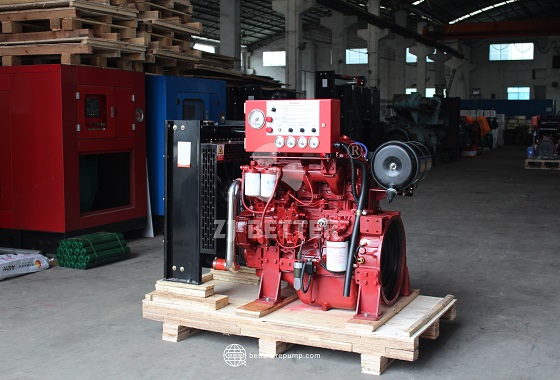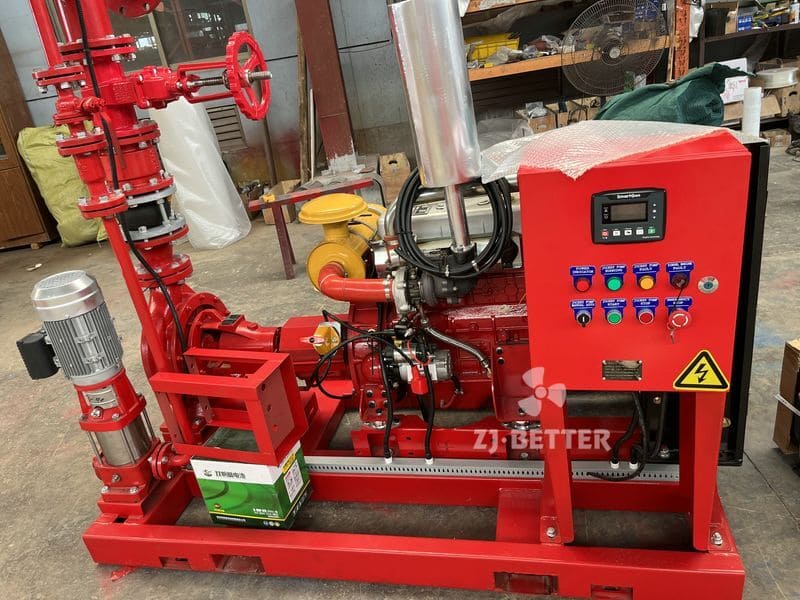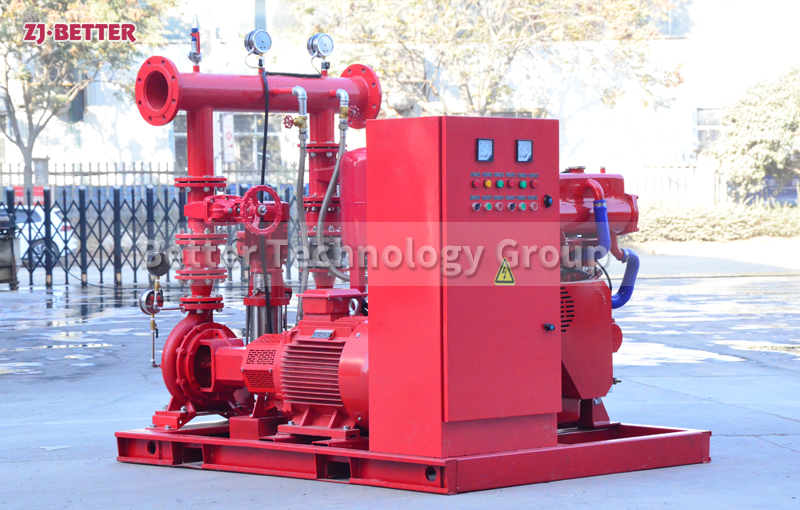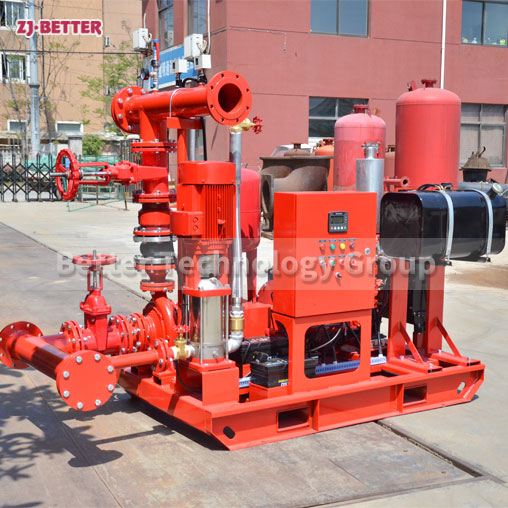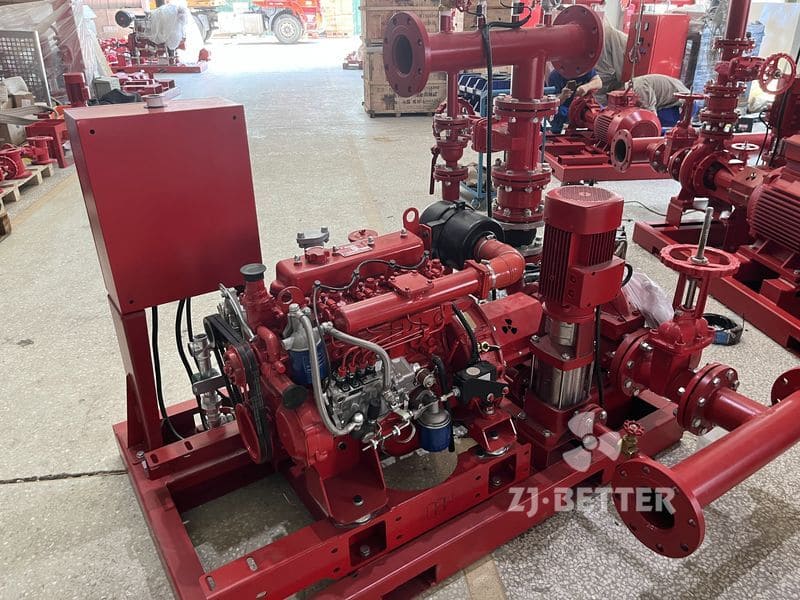How to Choose the Right Diesel Fire Pump: A Professional Guide to Ensure Efficient Firefighting
Explore the benefits of choosing the right diesel fire pump for efficient firefighting. Learn how ZJ-Better’s high-performance diesel pumps provide reliable, durable, and cost-effective solutions for emergency response, with advanced features like high flow capacity, quick startup, and low maintenance.
When selecting an appropriate diesel fire pump, it is essential to consider various factors such as the equipment’s power system, adaptability, durability, maintenance costs, starting performance, and flow output capacity. Diesel fire pumps are widely used in many industrial, commercial, and high-rise building applications due to their efficient power, independence, and exceptional stability. The following will focus on the main advantages and applications of diesel fire pumps to help you make the right choice.
One of the major advantages of diesel fire pumps is their efficient power system. Diesel engines provide powerful output, ensuring that fire pumps can start quickly and maintain stable operation during a fire. In the event of a fire, fire pumps must continuously supply a large volume of water pressure and flow to extinguish the fire source, and diesel pumps can consistently provide sufficient water supply under high-load conditions. Diesel engines are particularly suitable for environments such as fire scenes that require large water flow and high pressure. In the absence of a stable power grid, diesel fire pumps can operate independently, making them particularly important at fire scenes. Compared to electric pumps, diesel fire pumps can continue to provide reliable power even during power outages, ensuring that firefighting operations are not hindered by power issues.
The design of diesel fire pumps enables them to perform effectively in various application scenarios, from industrial facilities in remote areas to firefighting needs in high-rise buildings, providing stable and reliable water flow output. Whether it’s large industrial parks requiring high-pressure output or commercial buildings needing high flow rates, diesel fire pumps can meet the fire protection needs of different locations. Since diesel fire pumps do not rely on electricity, they are particularly suitable for areas with unstable or insufficient power supply. In such areas, diesel fire pumps ensure that fire suppression systems can continue to operate normally even without electricity. This makes diesel fire pumps an indispensable piece of equipment in many engineering and emergency services.
Diesel fire pumps feature outstanding durability and stability, making them particularly suitable for extreme environments. At fire scenes, temperatures are often extremely high, but diesel engines are designed with these factors in mind, enabling them to operate stably under harsh conditions such as high temperatures and pressures. Diesel engines undergo rigorous testing and possess enhanced resistance to high temperatures, pressure, and durability, capable of providing sustained power support over extended periods. Compared to electric fire pumps, diesel fire pumps offer greater stability due to their mechanical drive characteristics, enabling them to better withstand unstable environmental conditions. Even under high-load operation, diesel fire pumps maintain stable water pressure and output, ensuring that firefighting operations are not interrupted due to equipment failure.
Low maintenance costs and a long service life are among the most significant advantages of diesel fire pumps. Diesel engines are precision-engineered to withstand prolonged high-intensity operation without excessive wear, reducing maintenance frequency and costs. This not only lowers the overall operating costs of the equipment but also enhances its long-term value. The working components of diesel fire pumps exhibit strong wear resistance, meaning the equipment can maintain efficient operation even after prolonged use. The maintenance cycle for diesel fire pumps is also longer compared to electric pumps, and maintenance typically does not require specialized technicians, thereby saving significant labor and maintenance costs.
The startup performance of fire pumps directly determines the timeliness of firefighting operations. Diesel fire pumps have very high starting reliability, enabling them to start quickly in the event of a fire. Even in low-temperature environments, diesel engines can still start rapidly and be put into use, providing the necessary water flow and pressure. Compared to electric fire pumps, diesel fire pumps do not rely on external power, so their starting performance is less susceptible to power grid issues. In emergency situations, diesel fire pumps can be put into use in the shortest possible time, ensuring that firefighting operations begin promptly and reducing the risk of fire spread.
Diesel fire pumps have outstanding flow and pressure output capabilities, capable of meeting the requirements of most firefighting scenarios. Whether it involves high-pressure spraying for fire suppression or large-volume water supply for extensive areas, diesel fire pumps can provide sufficient water flow support. The design of diesel fire pumps places particular emphasis on hydraulic performance, ensuring stable operation under high-pressure and high-flow conditions. Even in the most critical situations, diesel fire pumps can sustain powerful pressure output, ensuring efficient completion of firefighting operations. Whether extinguishing fire sources or conveying water through pipelines, diesel fire pumps provide continuous power support.
Diesel fire pumps offer flexible fuel options, as diesel is easily accessible and relatively cost-effective, reducing long-term operational fuel costs. Diesel engines have high energy density, enabling them to provide longer operational support with the same fuel quantity, which is critical for the continuity of firefighting systems. Additionally, the cost-effectiveness of diesel fuel gives diesel fire pumps a significant advantage in terms of cost, especially in scenarios requiring prolonged operation. Compared to electric pumps, diesel pumps typically have lower operational costs, making them more economically practical across various industries.
ZJ-Better diesel fire pumps are designed and manufactured in strict accordance with international fire equipment standards, ensuring product quality and safety. They have obtained multiple international certifications, including UL certification and CE certification, demonstrating the equipment’s reliability and compliance on a global scale. These certifications not only provide assurance for customers but also serve as strong evidence of the product’s quality and performance. International certifications ensure that diesel fire pumps meet all fire safety standards and are widely recognized globally. Whether in domestic or international markets, the ZJ-Better diesel fire pump ensures high-quality, high-performance fire protection for users.
The modular design of the diesel fire pump provides high flexibility, making it easy to transport and install. In many remote areas or emergency situations, the diesel fire pump can be quickly transported to the site and installed, ensuring it is operational immediately. Compared to traditional equipment, the installation process for the diesel fire pump is simple, reducing installation time and eliminating the need for complex infrastructure support. Its compact design and lightweight structure allow the equipment to be easily transported to any required location and installed and commissioned in a short time. This is undoubtedly a significant advantage in emergency situations.
Modern diesel fire pumps are equipped with advanced intelligent control systems that can monitor the operational status of the equipment in real time, detect critical data such as water flow, pressure, and battery charge, and ensure the equipment remains in optimal working condition. The intelligent control system can automatically adjust the operational parameters of the equipment to adapt to different types of fires and environmental changes. In the event of a malfunction, the intelligent control system will promptly issue an alarm, helping users quickly diagnose the issue and take appropriate corrective measures. This intelligent control not only enhances the equipment’s automation level but also significantly reduces human error, ensuring the efficiency and safety of firefighting operations.
Diesel fire pumps, with their powerful power output, exceptional stability, low maintenance costs, and high reliability, have become one of the core components of modern firefighting systems. In the event of a fire, selecting an appropriate diesel fire pump can provide critical support for firefighting operations, ensuring smooth fire suppression efforts. Based on specific application requirements, choosing the right diesel fire pump not only enhances emergency response capabilities but also effectively reduces equipment maintenance costs, ensuring fire safety.
Ask ChatGPT




